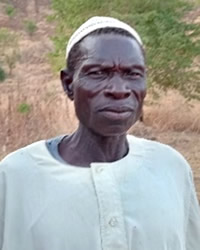Tumtum in Sudan

Photo Source:
Final Sudan
|
Send Joshua Project a map of this people group.
|
| People Name: | Tumtum |
| Country: | Sudan |
| 10/40 Window: | Yes |
| Population: | 24,000 |
| World Population: | 24,000 |
| Primary Language: | Tumtum |
| Primary Religion: | Islam |
| Christian Adherents: | 0.12 % |
| Evangelicals: | 0.12 % |
| Scripture: | Translation Started |
| Ministry Resources: | No |
| Jesus Film: | No |
| Audio Recordings: | No |
| People Cluster: | Nuba Mountains |
| Affinity Bloc: | Sub-Saharan Peoples |
| Progress Level: |
|
Introduction / History
The Tumtum people, residing in the Nuba Mountains of Sudan, have a long history rooted in this rugged and remote region. They have endured significant hardships, including conflict and displacement, yet they have maintained their identity and way of life. The Tumtum trace their lineage back through generations, preserving their language and traditions despite the pressures of external forces, including political instability and efforts at cultural assimilation.
What Are Their Lives Like?
The Tumtum people rely on subsistence farming and livestock herding as their primary means of livelihood. They cultivate sorghum, millet and other crops adapting to the challenging terrain and climate of the Nuba Mountains. Animal husbandry, particularly of cattle and goats, supplements their diet and provides additional income. The Tumtum live in small, close-knit communities, where cooperation is key to survival. Their homes, constructed from locally sourced materials, are simple yet functional, reflecting their deep connection to the land.
What Are Their Beliefs?
The Tumtum people practice a combination of traditional animist beliefs and Islam. While many have converted to Islam, especially in recent decades, traditional religious practices still hold significant sway in their lives. They believe in the presence of spirits in nature and the importance of ancestral worship. Rituals and ceremonies mark important events and agricultural cycles, blending Islamic practices with long-standing traditions. This syncretic approach to religion shapes the Tumtum's spiritual and communal life.
What Are Their Needs?
The Tumtum community faces numerous challenges, including limited access to education, healthcare and economic opportunities. The ongoing conflict in the region exacerbates these issues, making daily life precarious. There is an urgent need for peace and stability, alongside development initiatives that respect their cultural practices. Improving access to basic services such as schools, clinics, and clean water would greatly enhance their quality of life and future prospects.
Prayer Points
Pray that the Holy Spirit would open the spiritual eyes of Tumtum elders so they can see Jesus.
Pray that the Lord would awaken spiritual hunger in them to seek the truth, leading them to Jesus himself.
Pray that an awakening in the people will be contagious and the entire community would find Christ together.
Pray for loving and dedicated Christian workers to go to the Tumtum community.